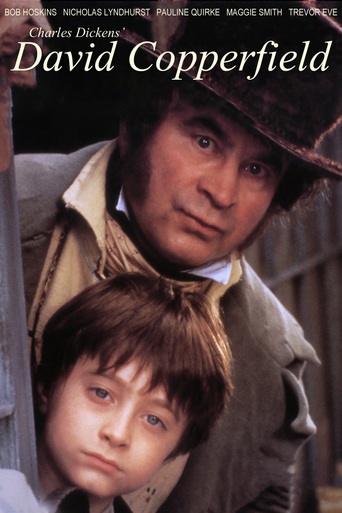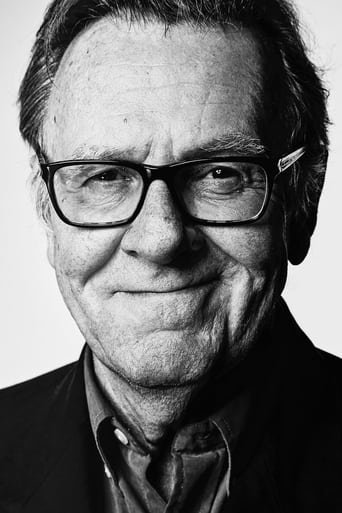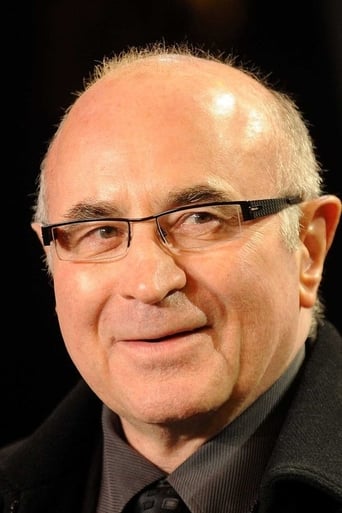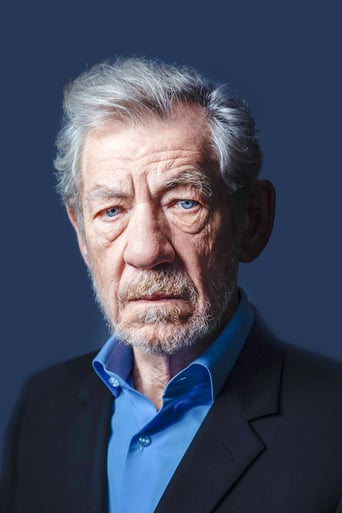David Copperfield (1999)
Charles Dickens' haunting semi-autobiographical tale of a boy who is sent away by his stepfather after his mother dies but manages to triumph over incredible adversities.
Watch Trailer
Free Trial Channels
Cast


Reviews
ridiculous rating
I have absolutely never seen anything like this movie before. You have to see this movie.
Fanciful, disturbing, and wildly original, it announces the arrival of a fresh, bold voice in American cinema.
Worth seeing just to witness how winsome it is.
This is a great adaptation of a great novel. One of Dickens' great strengths were his characters, which the film realises and portrays brilliantly. The casting choices were great and the performance of each actor was superb and really brought the story to life. I can't name a single actor that didn't do a great job. Even the more minor characters, such as Uriah Heap's mother, were acted very well. The story is told well and gave me similar emotions to the book. As far as adaptations go, it is very good. It develops the relationships between the characters brilliantly throughout the film and thanks to the fantastic performances of the actors, we are transported to Victorian England and experience one of the greatest stories ever told.The film followed the book very closely during David's childhood and almost throughout the film, and is a credit to the great novel. I would give the novel itself a 10, but I cannot give this film the full 10. One of the reasons I did not give this film the full marks is the choice of scenes not to include from the book. For example, in the book more of Steerforth's acts from school are told and you develop a real liking to the character, before he takes Ham's beloved Emily and becomes a villain. The film for me doesn't show the character in the same light as the novel and I personally didn't feel a great liking for the character in the film. There are other omissions from the book, such as the brief return of Murdstone, that should have been included also for this film to get 10. There are a few other omissions from the book that I thought would have made the film a little better. I understand the film is already 3 hours long but when you are doing adaptations from books, I don't think the length of the film should be an issue. It should be as long as it needs to be to accurately represent the book. Overall though it is a great film and I would recommend anybody to watch it. It is an almost perfect adaptation and up there with the greats such as To Kill a Mockingbird. I would recommend reading David Copperfield before you see the film however, as it is a truly great novel.
The rave reviews of this version are due more to contemporary audience's total ignorance of Dickens' writing, comfortable familiarity with the actors playing the roles and limited attention span. I saw the 1974 version first, with utterly unfamiliar actors, and a 300 minute length, as opposed to 186 minutes. Massive amounts of plot were excised. The only actor whose performance was worthy of Dicken's intentions was Pauline Quirke as Pegotty. In the 1974 version, Martin Jarvis played Uriah Heep, an icon of unctuous, oily, perfidy and criminality, so much richer than the current one. And Mr. Micawber (I love Bob Hoskins, mind you) but the script gave much greater depth to his pecuniary failures in the 1974 version. And the actor chosen to play Copperfield - what were the producers thinking? Copperfield is an alter-ego of Dickens himself, not some wimpy pretty naive boy. An intellectual, a writer. Everything came out right at the end (as Dickens always arranged)but it was so neatly done and so unsatisfying. If you're a Dickens fan, I enourage you to watch the 1974 version.
This is good stuff, and I echo most of the positive comments made here. But is it just me, or didn't anyone else find the casting over-excessively starry? Every time I blinked there was another well-known name playing a small part, down to Dawn French as the landlady and Paul Whitehouse as the pawnbroker. What next, I thought, Clint Eastwood as the milkman? Tom Hanks as the bloke walking by on the other side of the road? Which is not to say that they weren't all very good - of course they were! - but I found it very distracting sitting there waiting in anticipation with my I-Spy book of stars doing cameos.And please save me from "Oh, Daniel Radcliffe was so cute." Radcliffe was an almost incidental child actor, who did a bit better here than he did in the Potter films (where he was so wooden that he failed to justify the faith placed in him). The strength here is in the featured characters surrounding David Copperfield's anodyne narrator.OK, that's my bit done. Normal service will now be resumed.
This BBC version of David Copperfield demonstrates rather well the differences between a novel and a film or TV production. On the face of it, there is nothing wrong with this - in fact as far as TV productions go, this is rather good. High - very high - production values, top-notch actors, good direction: it's all there. So why does it only get half marks. Well, that has to do with the difference between film and writing. We live in a visual age where visual impressions are everything. So for many years now Hollywood has been getting away with producing highly successful, high-grossing film which, at the end of the day, have very little going for them but loads of action. This is true of films ranging from vacuous nonsense such as Enemy Of The State, which is nothing but one long chase to family films such as the equally vacuous Home Alone. The secrecy is to make sure the viewer has no time to think. In fact, thought is a no-no (something which seems to be a feature of our age in the Western world anyway.) Fiction can be equally as exciting, but the writer has none of the resources of the film maker: no film score, no special effects, no computer animation, no soundtrack. Everything - and that does mean everything - has to be conveyed somehow by the written word. And everything takes place in the reader's imagination. And sparking that imagination is the art of the writer. Ironically, despite apparently far more limited resources, the writer is far freer. In a very curious sort of way he has no restrictions whatsoever. So what has this to do with the BBC production of David Copperfield? Well, it is this: through no fault of its own, the 'movie' version of David Copperfield simply isn't very good. Why? Because what can be established in the novel takes far longer to be established on film, or at least in a film using this conventional kind of production. Dickens, despite being restricted to merely a quill pen and a well of ink, could give his story far more depth than a TV production, which is not allowed to take too long doing anything for fear of losing the viewer's interest. Some examples of why this TV production simply leaves too much out in the cold to allow for an enjoyable, intelligent rounded experience: David's nasty stepfather: exactly why does he take a dislike to David and treat him so badly? David's relationship with Peggoty's family in Yarmouth: we are simply informed that he forges a close bond with them, but never shown why. Steerforth's relationship with his mother and his mother's companion: this is all very much drama lite. Steerforth's seduction of Emily: it all happens off-stage and really doesn't register. Betsy Trotwood: just why does she have such a down on boys? Who knows? The list could go on. Everything on screen is presented and intended simply to be accepted. No reasons or justifications are ever given. On the written page, on the other hand, and given the freedom of the writer to employ whatever means he or she wishes to tell his or her story, these things can be established. The writer can digress, explain, range over time and distance, do things which are often impossible for the filmmaker. It is an irony that the writer is far less constricted and restricted in what he might do than the filmmaker, despite all the technical whizzbangs and tricks whichthe the film director has to hand. I pointed out that this particular version of David Copperfield might have suffered from the very conventional television direction. The implication is that given another director, this might have been more convincing. Oh well. For those who like their Sunday afternoon Dickens, this is passable stuff. But in no way does it rise above being very ordinary.








